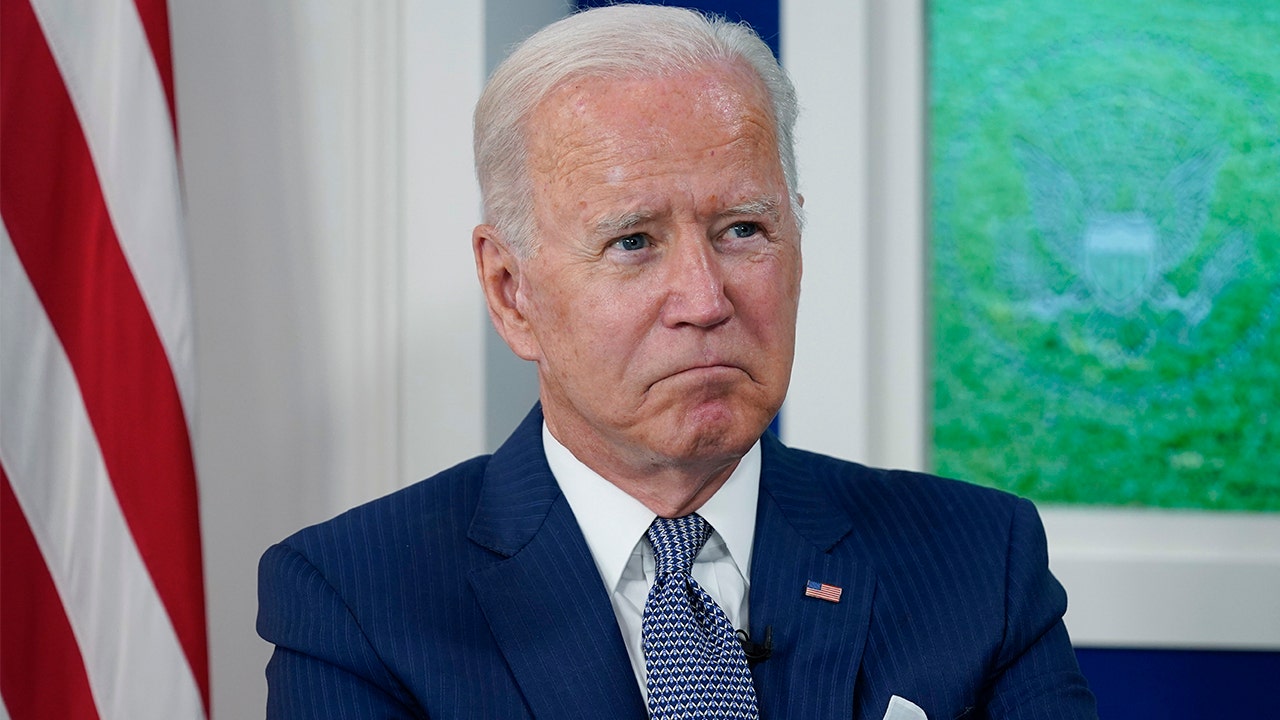
Former Energy Secretary Rick Perry discusses Biden pausing LNG exports and the ongoing border crisis.
The good news: the United States is awash in natural gas, driving prices lower. Moreover, the abundance will continue; we have an estimated 86 years’ supply of natural gas.
The bad news: in one of the dumber decisions to date (a high bar), the Biden administration has decided to “pause” its approvals of new LNG terminals which would allow increased exports of liquified natural gas.
The decision is Joe Biden’s politically-motivated sop to climate activists who are peeved that the president allowed the Willow oil drilling project to move forward in Alaska. Environmentalists are no doubt also alarmed that the United States is still driving gasoline-powered cars, cooking with natural gas and enjoying steak dinners.
The fantasy that we would overnight become a country of bicycle-riding eaters of fried bugs simply hasn’t materialized, much to the regret of – especially – young voters, who backed Biden heavily in 2020 but who now favor Donald Trump.
WHITE HOUSE HALTS ENORMOUS NATURAL GAS PROJECTS IN VICTORY FOR ENVIRONMENTALISTS
The irony is that increased LNG exports from the U.S. can help China, the world’s biggest carbon emitter, and other countries transition away from coal, the world’s dirtiest fuel. By slashing future U.S. LNG exports, Biden will actually make the global climate outlook worse.
American Petroleum Institute CEO Mike Sommers explains how the U.S. has oil ‘insurance’ based on its domestic supply.
The U.S. LNG industry has taken off since 2016, when the first shipments left our shores. The business has been spurred by substantial excess natural gas resources in the U.S. and by increasing demand from overseas. The construction and management of LNG terminals has produced tens of thousands of jobs along the Gulf Coast and elsewhere; there were more to come as the industry planned ongoing expansion.
Not only is the industry’s growth creating opportunity and wealth, it is also geopolitically smart.
US LED THE WORLD IN LIQUEFIED NATURAL GAS (LNG) EXPORTS IN 2023
Who buys LNG? China, South Korea and Japan, all of which run a substantial trade surplus with the U.S. Shipping LNG to all three is financially and strategically advantageous to the U.S.
Who competes to export LNG? Other than the U.S. and Australia, leading exporters of LNG include Qatar and Russia, countries that are not friendly to the U.S. As we ramp up LNG exports, Qatar has less money to fund anti-U.S. terror groups and Russia loses financial support for its war against Ukraine.
Former Energy Secretary Dan Brouillette weighs in on the Biden administration’s pause on natural gas projects and the electric vehicle push.
Exports of LNG were first authorized by President Obama and became a reality under President Trump. The industry proved a gift to the Biden White House.
ENERGY DEVELOPER AXING KEY COAL POWER PLANTS TO MEET ECO GOALS, JEOPARDIZING POWER FOR MILLIONS
In March 2022, President Biden promised our European allies that we would plug the hole in their energy supplies created by the Ukraine war. We achieved that by quickly becoming the world’s leading exporter of LNG, supplying roughly 22% of worldwide demand.
Putin’s invasion of Ukraine opened up a hole in Europe’s energy supply for two reasons. First, former Chancellor Angela Merkel allowed Moscow to get a stranglehold over Germany’s gas supply when she authorized the Nordstream Pipeline. That line brought natural gas to Germany from Russia; the foolishness of Merkel’s decision became evident several months into the war with Ukraine, when Putin cut off gas exports to Germany. At the time, Germany received 55% of its natural gas and one third of its oil from Russia. It wasn’t the first time Moscow had used gas exports as a weapon; in 2009 and 2014 it stopped exports to Ukraine over pricing disputes and also for political purposes.
Poland President Andrzej Duda says Russia’s imperialism must be ‘stopped,’ and discusses the importance of Ukraine aid and Polish GDP.
Merkel went further, authorizing the construction of the Nordstream 2, designed to bring even more gas to Germany from Russia, over the objection of Eastern European countries and the United States who cautioned that the increased flow would facilitate Putin’s aggression. That additional line was ditched by Merkel’s successor just before Putin invaded Ukraine.
BIDEN ADMIN ABRUPTLY REVERSES PROPOSAL OPENING PUBLIC LANDS TO FOREIGN OWNERSHIP AFTER GOP OPPOSITION
In addition, in 2010, Germany adopted their very own Green New Deal, or Energiewende, to cut carbon emissions. The program required Germany to shut down its thriving nuclear power (clean energy) system, abandon coal and build up its renewables industry. The country’s remaining three nuclear plants were shut down last year.

FILE – From left: British Prime Minister Boris Johnson, French President Emmanuel Macron, German Chancellor Angela Merkel and U.S. President Joe Biden at the G20 summit in Rome, Saturday, Oct. 30, 2021. (Stefan Rousseau/Pool via AP / AP Newsroom)
In 2023, Germany’s use of renewables (mostly wind power) did indeed increase, in part because industries reliant on cheap gas like fertilizers and chemicals, contracted sharply. Meanwhile, coal continued to supply 25% of Germany’s electricity consumption.
Though they have dropped from the record levels in mid-2022 caused by Russia’s gas supply cuts, wholesale power prices in Germany last year were almost twice the average rate paid from 2019 through 2021. The energy crisis caused the economy to contract and manufacturing to drop 2 percent.
GET FOX BUSINESS ON THE GO BY CLICKING HERE
When Joe Biden went to Europe to round up support for the war in Ukraine, he committed to helping Europe stave off an energy crisis that was well underway. Otherwise, the EU would have been far less eager to help defend their eastern neighbor. The U.S. came through, and the increased supplies of LNG delivered to newly-build terminals in the EU helped save the day.
The LNG industry has proven a godsend in Europe; ongoing expansion will continue to stabilize energy markets globally well into the future.
Former Energy Secretary Rick Perry discusses a report that a CCP-tied group is reportedly quietly fueling U.S.-based climate initiatives on ‘The Evening Edit.’
Biden’s problems are many, with nearly every traditional voting group moving away from our fast-aging president. But it is especially with young people that Biden’s failures have taken a toll. People just starting out have found themselves incapable of buying a home and struggling to make ends meet with entry-level jobs. They are also unhappy with Biden’s support for Israel.
CLICK HERE TO READ MORE ON FOX BUSINESS
Biden is quite forthright that the LNG decision is political. In a statement accompanying the decision, Biden says, “While MAGA Republicans willfully deny the urgency of the climate crisis…We will heed the calls of young people and frontline communities…”
Mike Sommers, head of the American Petroleum Institute, said this about Biden’s decision: “This is a win for Russia and a loss for American allies, U.S. jobs and global climate progress.”
That sounds about right.
CLICK HERE TO READ FROM LIZ PEEK








